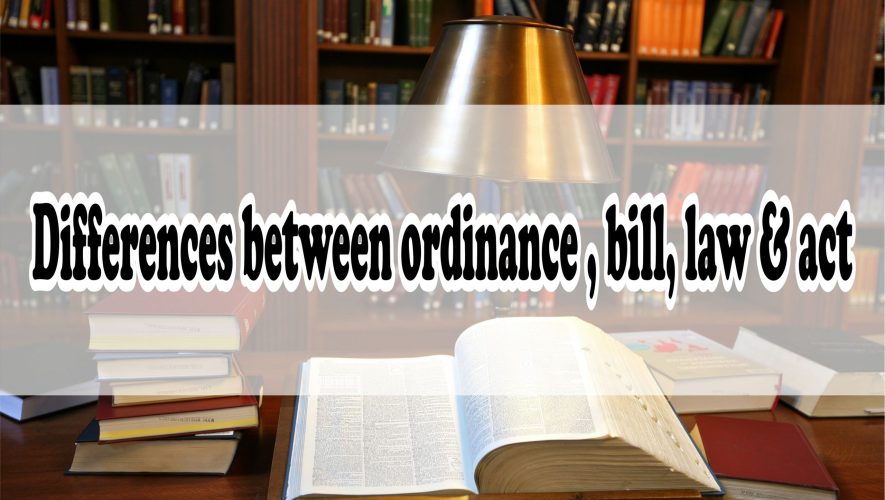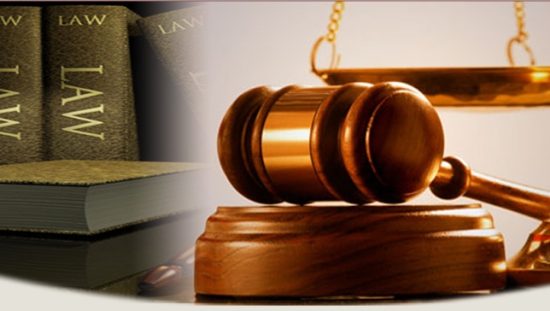What is Law?
Law is a generic term that comprises Acts, regulations, Ordinances and all other subordinate legislations that are meant to not just maintain public order but also to provide information to public regarding rules and regulation that apply in specific situations.
Important Law Terms
Some important law terms which are commonly used in the field of law are as under:
- Bill / Legislation
- Act
- Ordinance
- Statutes
- Rules & Regulations
- Constitution
- Policy
- Jurisprudence
Bill / Legislation
A Bill is a draft legislation proposed by a member of the Parliament or it may be introduced by the government itself.
The Bill is laid threadbare in the lower house of the parliament and once it has been passed after deliberations, the Bill goes to the Upper house for approval. It is only after the bill gets passed by the upper House also that it is sent to the President for his assent.
The Bill finally becomes a law (Act) of the land once it has been passed by the parliament and also got assent from the President.
Act
An Act is a type of legislation that comes into effect when a draft bill introduced either by the treasury bench or a private member of the parliament gets passed by the members (legislators) and it also gets the assent of the President to finally become an Act or the law of the land.
Acts are a type of Laws that pertain to specific situations and circumstances. They are passed by the government to let people know the rules and regulations about specific situations. PEEDA Act 2006 is one such example.
Ordinance
Ordinances are laws that are passed through promulgation by the president of the state when the parliament is not under session and have the same power and effect as an Act. They however either get annulled or have to face the parliament when it convenes next and converts them into Acts.
Ordinance is sometimes referred to as local level laws that are introduced by provincial or local bodies and have the same power and effect as that of acts but only as far as province or city limits. In some circumstances, ordinances have the ability to supersede federal laws.
Statutes
Statutes are the written and codified laws. The written laws of a country that have been passed by its legislative body are known as statutes. Statutes are not laws that are made by courts or issued by governments as ordinances. Statutes have primacy over all other laws, and thus those are sometimes called black letter laws.
Rules & Regulations
A rule is generally defined as “an established and authoritative standard or principle; a general norm mandating or guiding conduct or action in a given type of situation”.
The word ‘regulation’ is used to denote a set of rules that have legal connotations. These are the detailed provisions that define how the act is going to be applicable under different circumstances.
Constitution
A body of fundamental principles or established precedents according to which a State or any other organization is acknowledged to be governed is known as constitution of the state.
Policy
Policies are objectives that an organization or a government sets for itself to achieve in a given period of time, and laws are the tools that help a government achieve these objectives. Policies provide guidelines or a framework to move forward in the desired direction.
Jurisprudence
Jurisprudence is the philosophy of law. It is the systematic and formulated knowledge or science of human law. It is also known as legal theory.
OTHER RELATED POSTS




thanks for this quality content. i really needed this.